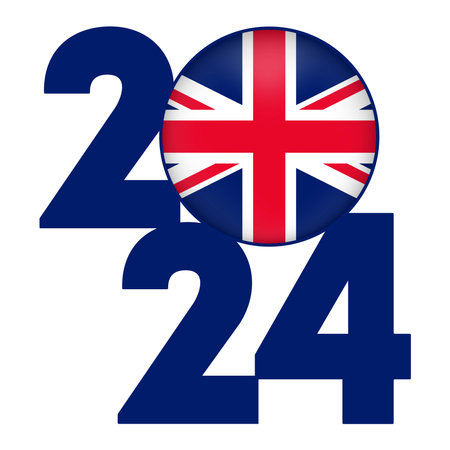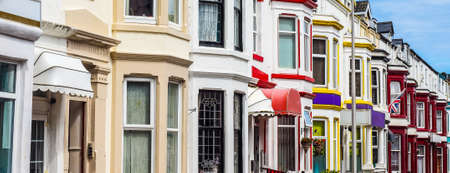Introduction to Numerology and Its British Context
Numerology, the age-old study of the mystical significance of numbers, has long held a subtle yet persistent presence in the fabric of British society. While often considered an esoteric pursuit, its roots in the United Kingdom reach back to ancient times, weaving through the Celtic traditions, the cryptic symbolism of Druidic lore, and the broader European fascination with the occult during the Renaissance. In Britain, numerology has evolved into more than just a system of divination; it is an undercurrent that influences folklore, literature, and even place names themselves. From the structured grid of London’s streets to the evocative charm of rural village names, numbers are subtly embedded within the British psyche. This blend of superstition and rationalism is distinctly British—where a belief in fate and destiny coexists with a pragmatic worldview. As we delve deeper into the numerology of British place names, it becomes clear how this practice has shaped not only individual outlooks but also communal identities, hinting at a fascinating interplay between where we are from and who we are destined to become.
2. Decoding British Place Names
Understanding the numerology of British place names begins with analysing their unique linguistic structures. Across England, Scotland, Wales, and Northern Ireland, place names are layered with history, often reflecting ancient languages, geographical features, or the influence of past settlers such as Romans, Saxons, and Vikings. To break down these names for numerological purposes, we must first understand how they are constructed before converting their letters into numbers.
Dissecting the Structure of Place Names
British place names typically comprise prefixes and suffixes that indicate location, landscape, or historical ownership. For example:
| Region | Place Name | Prefix/Suffix Meaning |
|---|---|---|
| England | Stratford-upon-Avon | ‘Strat’ (street), ‘ford’ (river crossing), ‘upon Avon’ (on the River Avon) |
| Scotland | Aberdeen | ‘Aber’ (confluence of waters), ‘deen’ (River Dee) |
| Wales | Llanfairpwllgwyngyll | ‘Llan’ (church/parish), ‘pwll’ (pool), ‘gwyn’ (white), etc. |
| Northern Ireland | Belfast | ‘Béal’ (mouth), ‘feirste’ (sandbank/river) |
The Numerological Conversion Method
Once the name’s structure is understood, numerologists assign each letter a numerical value based on established systems such as Pythagorean numerology. The most common assignment is as follows:
| Letter | Numerical Value |
|---|---|
| A, J, S | 1 |
| B, K, T | 2 |
| C, L, U | 3 |
| D, M, V | 4 |
| E, N, W | 5 |
| F, O, X | 6 |
| G, P, Y | 7 |
| H, Q, Z | 8 |
| I, R | 9 |
An Example in Practice: York
If we take ‘York’, we assign values as follows: Y=7, O=6, R=9, K=2. Adding them together: 7+6+9+2 = 24; then reduce to a single digit: 2+4 = 6. Thus, the numerological value for York is 6.
The Cultural Relevance in Britain
This method can be applied to any British town or city—whether it’s a bustling metropolis like Manchester or a quaint village in Cornwall. By decoding place names and calculating their numerological values, we begin to see patterns that some believe connect geography with personality traits and destinies unique to each locale.

3. Interpreting Numerological Values: Unpacking the Meanings
Once the numerological value of a British place name has been calculated, the next logical step is to interpret what this number signifies. Each number, from 1 through 9, as well as the master numbers 11 and 22, carries distinct qualities and historical resonances. These numerical energies are believed to shape the character of a locality and influence the collective mindset of its residents.
Numerological Archetypes and Local Character
For example, a town whose name reduces to the number 1 is often associated with pioneering spirit, independence, and leadership. Such places might historically be centres of innovation or the birthplace of influential figures in British history. In contrast, a place name that totals 6 may reflect a community-oriented environment, where tradition, family values, and mutual support are paramount—think of tight-knit villages in the Cotswolds or community-driven neighbourhoods in Yorkshire.
Numbers and the British Historical Narrative
These interpretations are not arbitrary; rather, they can be mapped onto the historical development of many British locations. The number 4, for instance, symbolises structure, stability, and hard work—qualities that resonate with industrial towns in the Midlands, where a legacy of manufacturing and craftsmanship endures. Similarly, a coastal settlement bearing the vibrational signature of 5 may exude adventure, changeability, and openness to new influences, mirroring centuries of maritime trade and cultural exchange.
Collective Consciousness and Modern Identity
Beyond individual attributes, numerological values are thought to permeate the collective consciousness of a place. This means that residents may unconsciously embody the traits associated with their hometown’s number, contributing to a shared sense of identity. Whether it’s the stoic resilience of northern cities (number 8) or the artistic flair of bohemian enclaves (number 3), these patterns are woven into the social fabric. Thus, numerology offers an intriguing lens through which to view the enduring character and destiny of British communities.
4. Regional Case Studies: From Cornwall to the Highlands
To appreciate the impact of numerology on British place names, it is insightful to examine specific regions and towns, highlighting how numerological readings intersect with local culture and history. Below, we present a selection of case studies from across Britain—demonstrating both the diversity of place names and the unique cultural lenses through which they are interpreted.
Cornwall: St Ives
St Ives, a renowned seaside town in Cornwall, is associated with creativity and artistic energy. By applying the Pythagorean numerology system, “St Ives” (S=1, T=2, I=9, V=4, E=5, S=1) yields a total of 22. In British numerology, 22 is considered a ‘master number,’ symbolising vision and the power to build dreams into reality. Unsurprisingly, St Ives has historically attracted artists and writers, mirroring its numerological essence.
Liverpool
Liverpool’s name (L=3, I=9, V=4, E=5, R=9, P=7, O=6, O=6, L=3) sums to 52, reducing to 7 (5+2). The number 7 is linked to introspection, intellect, and spiritual growth. This resonates with Liverpool’s rich musical and academic heritage, suggesting a destiny shaped by cultural depth and innovation.
Edinburgh
The Scottish capital, “Edinburgh” (E=5, D=4, I=9, N=5, B=2, U=3, R=9, G=7, H=8), totals 52, again reducing to 7. Here, the number is interpreted through the prism of Scottish enlightenment—a tradition of scholarship and philosophical inquiry—further supporting the city’s historical role as a centre for learning and culture.
Comparative Overview
| Place Name | Numerological Value | Key Traits | Cultural Influence |
|---|---|---|---|
| St Ives | 22 | Visionary, Creative | Artistic heritage, thriving galleries |
| Liverpool | 7 | Intellectual, Spiritual | Music, academia, innovation |
| Edinburgh | 7 | Scholarly, Reflective | Philosophy, education, enlightenment |
Unique Cultural Perceptions
While numerological interpretations provide a universal framework, each region’s local folklore and traditions add depth to how these numbers are perceived. In Cornwall, mystical legends amplify the significance of master numbers. In Scotland, a strong academic tradition colours the understanding of introspective numbers. These case studies illustrate that the interplay between numerology and British place names is not merely mathematical but deeply woven into the cultural fabric of each locality.
5. How Your Hometowns Name Shapes Personal and Collective Destiny
The idea that the numerology of your hometown can influence both your personal fate and the collective identity of your community is a fascinating blend of mystical tradition and cultural observation. In the context of British place names, this theory posits that the letters and numbers inherent in names like “Cambridge,” “Aberdeen,” or “Wimbledon” carry energetic vibrations that subtly shape the lives of those who call these places home.
The Individual Perspective: Personal Influence
Proponents of this theory argue that when you are born or grow up in a particular town, you attune to its vibrational signature. For example, if you live in “Oxford”—which numerologically adds up to a number associated with wisdom and learning—there is a suggestion that residents may be more inclined towards academic pursuits or intellectual growth. Anecdotal evidence supports this, with stories of families who have moved from one British town to another and noticed significant shifts in ambition, temperament, or even luck after settling into a new locale.
Case Studies and Anecdotes
Consider the town of “Brighton,” whose name is often linked with creativity and vibrancy when analysed through numerology. Local artists and entrepreneurs sometimes attribute their inspiration and success to the unique energy of their hometown. Similarly, people from “Bath” have reported feeling a sense of serenity and healing, which aligns with both the city’s spa heritage and its numerological profile.
The Community Perspective: Shaping Identity
Beyond individual destiny, the collective identity of British towns can also be influenced by their numerological essence. Research into community psychology suggests that shared beliefs—even those rooted in tradition or folklore—can foster unity and a strong sense of belonging. When residents collectively perceive their hometown as embodying certain qualities (be it industriousness in “Manchester” or resilience in “Dover”), these shared narratives can drive social cohesion and guide communal decision-making.
Supporting Research
While empirical studies on place name numerology are limited, sociolinguistic research highlights how names carry implicit meanings that affect perceptions and behaviours. The ritual of assigning value to a place’s name—whether through numerology or historical association—can reinforce local pride and motivate community-driven initiatives. In Britain, where history and tradition hold significant sway, this subtle influence can be particularly pronounced.
Ultimately, whether viewed as mystical truth or cultural phenomenon, the numerology of British place names offers an intriguing lens through which to explore how our environments shape who we become—both as individuals and as communities.
6. Applying Numerology: A Practical Guide for Britons
Step 1: Write Down Your Hometown’s Name
Begin by writing the full name of your hometown as it appears on official maps or signage. For example, “Birmingham”, “Bath”, or “Aberystwyth”. Ensure you use the English spelling commonly recognised in the UK.
Step 2: Assign Numerological Values
Use the Pythagorean system, which is widely accepted in British numerology circles. Assign each letter a number as follows:
- 1: A, J, S
- 2: B, K, T
- 3: C, L, U
- 4: D, M, V
- 5: E, N, W
- 6: F, O, X
- 7: G, P, Y
- 8: H, Q, Z
- 9: I, R
Step 3: Calculate the Total
Add up the numbers for each letter in your town’s name. For example, “Bath” would be calculated as B(2) + A(1) + T(2) + H(8) = 13.
Step 4: Reduce to a Single Digit
If your total is more than one digit (except for master numbers 11 or 22), add the digits together until you reach a single number. In our example, 13 becomes 1 + 3 = 4.
Special Note on Master Numbers
If your total is 11 or 22—known as “master numbers” in numerology—do not reduce further. These are considered powerful and rare influences.
Step 5: Interpret the Meaning in a British Context
Now that you have your hometown’s core number, refer to a numerological guide to interpret its significance. Here are quick references with a British twist:
- 1 (Leadership): Towns with this number often foster independence and pioneering spirit—think of places like Cambridge where innovation thrives.
- 2 (Harmony): Expect a focus on community and cooperation; many market towns embody this supportive atmosphere.
- 3 (Creativity): Artistic energy abounds—perhaps you’ll find cultural festivals or historic theatres at the heart of town life.
- 4 (Stability): Traditions run deep here; from village greens to local pubs, there’s a solid sense of heritage.
- 5 (Freedom): Coastal resorts and university cities may reflect this dynamic energy and openness to change.
- 6 (Responsibility): Often linked with caring communities—look for strong voluntary sectors or famed local charities.
- 7 (Introspection): Places known for their tranquil parks or libraries might embody reflection and learning.
- 8 (Ambition): Economic hubs and bustling city centres could suggest drive and prosperity.
- 9 (Compassion): Expect inclusive values; towns famed for historical kindness or activism fit this profile well.
- 11/22 (Master Numbers): Rare but potent—these places may have an outsized influence on national culture or history.
Tying It All Together: Everyday Advice for Britons
Your hometown’s numerology can offer insight into both personal identity and communal patterns. Whether you’re choosing a new place to live—from Aberdeen to Penzance—or seeking deeper understanding of your roots, this system offers a uniquely British perspective on destiny. Remember to balance numerological insights with everyday realities; after all, British life is shaped as much by weather forecasts and train timetables as by ancient numbers!


